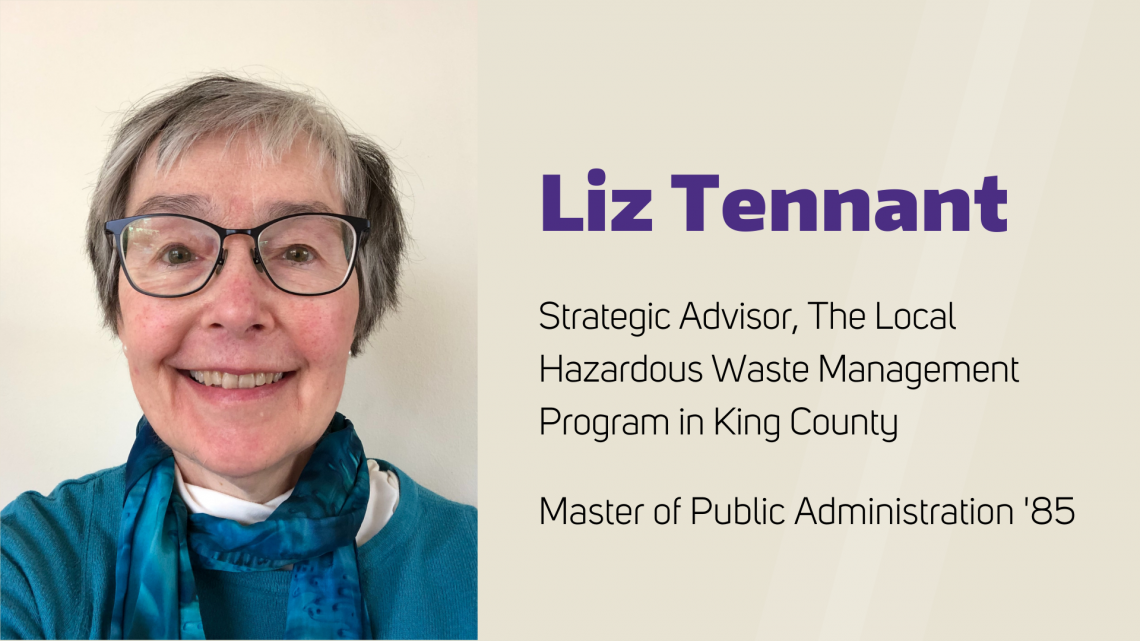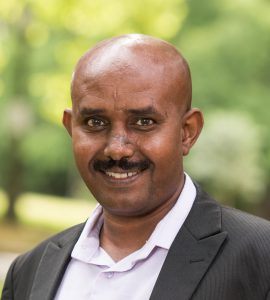 Earlier this year, the IPPHL team spoke with Hentsa Haddush Desta, a Cohort 1 fellow from Ethiopia, working as an Epidemiologist/Rapid Responder for Africa Center for Disease Control and Prevention (Africa CDC) COVID-19 Preparedness and Response.
Earlier this year, the IPPHL team spoke with Hentsa Haddush Desta, a Cohort 1 fellow from Ethiopia, working as an Epidemiologist/Rapid Responder for Africa Center for Disease Control and Prevention (Africa CDC) COVID-19 Preparedness and Response.
We talked about his recent work handling COVID-19 in the Tigray region of Ethiopia, and how he had to pivot from COVID response to wartime emergency management nearly overnight. He shared his experiences, challenges in leading during a multifaceted crisis, and how previous work and his time at IPPHL shaped his response.
You had mentioned you were engaged in the COVID-19 response in the Tigray region of Ethiopia in November, when the war began. Could you tell us a little about your work prior to November, and how the war affected this work?
The war broke on November 4 at midnight. My team had been there supporting the COVID-19 preparedness and response for the regional state. We were five health workers with different skill sets such as surveillance, case management, infection prevention and control, and community engagement. I was the team lead; three were deployed by the Ministry of Health and two of us by the Africa CDC. We were the ones who engaged with and where deployed by the federal ministry of health and EPHI/Africa CDC, to support the regional, zonal and district teams to scale up the COVID-19 preparedness and response down to the grassroots level.
As of November 3, 2020, we had tested about 87,787 samples and there were 6,738 positive COVID-19 cases and 47 deaths reported. At that time, there were also 353 active cases in treatment centers. And when the war broke out, we didn’t know where all those individuals with positive cases went. They probably escaped to their homes, so they would have been mixing with their families. We don’t know what the spread looked like after that. Even until today (09 March 2021), no one knows the COVID-19 status of the region.
At that time, all the COVID-19 activities and other health service delivery activities were interrupted or totally stopped because of the war. So, it seriously affected our work. We were supporting the region in surveillance, contact tracing, case management (especially the home-based isolation and care services), sample collection, and transportation as well. All of these services had been interrupted because of the war. It seriously hampered our active engagement in the health sector of that region.
How did you work around or overcome some of these challenges?
After the war broke in 04 November 2020; all the COVID-19 cases in treatment and isolation centers dispatched to their homes. Not only the COVID-19 cases, the health workers also escaped or fled from the treatment and isolation centers, health facilities, and surveillance sites. We tried to reach some of the critical COVID-19 cases. Some of them were elderly. We searched for them by visiting house to house, as there were no means of communication. The interruption of communication modality seriously affected the health facilities and major hospitals to provide care to delivering mothers and other people in need of emergency care. We brought some health workers from their homes to treatment centers and hospitals using our own cars to support the critical patients suffering at their homes, taking life or death risks by passing warring forces. We also brought supplies from private pharmacies to refill the out-of-stock medical stores at big hospitals. Even when they were officially closed, we negotiated with the pharmacies and store owners to bring us essential medicines for critical care patients. Because of our team’s engagement and support, we saved several lives who were at the brink of death. But our support was tip of the iceberg comparing to the scale of the crisis. Our movement was limited in the Capital City of Mekelle. We were never allowed to move out of the capital because of active war and security issues.
We don’t know the status of COVID-19 cases and contacts under follow up, where they went, or if they recovered or died. There was a complete black- out of internet and phone services and electricity. Mekelle is a big city and you could not track individuals at night; the patients came from the outskirts of the city, countryside, other zones and towns, and nearby soundings, so it was challenging for us to identify them and know their status.
The other issue is we were also supporting the emergency services of the major hospitals in Mekelle. Because of the war, the COVID-19 labs, logistics, and testing kits weren’t available. Even the sample collection kits and laboratory staff were not available. Since we could not operate at that level, we stopped working on COVID-19 shifted to support the other health emergency and humanitarian services in major hospitals in Mekelle city. We were trying our best to maintain these emergency services, especially for laboring mothers and their children, critical trauma patients, and those that in need of emergency surgery.
We were bringing health workers from their homes with our own cars to provide support for emergency and critical cases. There were also many people coming from the fields and nearby towns, the wounded people who had been affected by the heavy artillery, aerial bombing, and war. These casualties were also being treated in the emergency services. Even though there was a critical shortage of medical services, we were trying to bring any available medications from other stores and even local private stores to find essential emergency medication for those services.
What is the role of leadership and policy in emergency response?
I think during emergencies, the role of leadership is vital. In an emergency, everything is chaotic so no one understands the issues of the people suffering from illness, trauma, different accidents, psycho-social problems, etc. If a good leader comes, you can overcome some of these challenges even in the presence of multifaceted catastrophic emergencies. So the leadership role is especially vital in early warning, emergency preparedness and response, and post emergency recoveries. And in Tigray, in addition to the COVID-19 pandemic, the catastrophic war was also creating unexpected challenges with a complicated health and humanitarian crisis. In both those kinds of emergencies (COVID-19 and catastrophic war), leading health care delivery systems is difficult and needs smart and talented leadership and analytical skills, and knowledge of how to approach people and serve in the middle of catastrophic emergencies when people are struggling to live or die. A leader who can scan, focus, align, and mobilize resources, inspire the health workforce, plan, organize, implement, and monitor and evaluate is badly needed during this type of complex emergency, social and humanitarian crisis.
What types of skills and knowledge did you find the most useful to addressing the situation?
I learned the value of the strategic triangle in dealing with such type of unprecedented situations; negotiation and diplomacy, bridging especially the influence model. We reduced many disastrous factors by just talking to people diplomatically. By understanding their concerns, people will cooperate with you and support you. If you just approach them through honest diplomacy, even rival groups will give you resources and things that you need, as much as they can. For example, in this issue, some of the combatants were arrogant and they were killing civilians. We tried to approach their leader and talked to him politely, asked why they are killing people and after many conversations we convinced him and he ordered his troops to stop killing civilians, especially the young people in the town. He also cooperated with us and gave us one ambulance for the transportation of pregnant women, and allowed the ambulance to move even during the curfew time. In most of my experiences what I’ve learned is health diplomacy is an excellent agenda and should be incorporated as a discipline in our health system.
I think I benefited from the IPPHL training. I used it to convince these military personnel and heads to let us continue emergency services and avail ambulances for patient transportation. In communicating with them, I practiced leadership, management, and governance skills to convince stakeholders. We worked with the security forces and local people as well in hiring youth volunteers to support patients. We especially used the strategic triangle in identifying the critical challenges and potential support from partners and local communities, and collecting feedback from those consumers to ensure continued emergency and humanitarian services.
Can you tell us a little more about working with the youth volunteers?
The COVID-19 response needed youth engagement. We were training the youth volunteers to provide health education, especially to advocate handwashing and physical distancing practices in large markets and social gathering areas. We were in touch with those volunteers but when the war began, it was difficult to find them; we had to search for them one by one, and if we found one they could call their colleagues. we engaged some of them to support their people in IDP centers in shelter preparation, wash facility arrangement, and food items distribution. They were also supporting their people during the war by bringing pregnant women to hospitals for delivery, and wounded people from hotspots to health facilities, so it was great to engage those youth during that difficult time. Most of them are energetic and eager. Later, in the middle of the war, the military tried to search for and arrest the youth, so most of them had to hide. The youth were instrumental during the early time of war, they supported the system as much as they could and contribute a little to some of the unprecedented emergencies.
How did your team transition to the emergency services work in that time?
At that time we were forced to be compassionate. We were alone in Tigray, our families were in Addis, we had no communication with them, and we had no choice but to face the challenges in Tigray and provide some possible services to our communities there. We were a team. We were staying in one apartment and we were dispatching from that apartment to different facilities. There was a curfew; no one could move after 6 pm. So we had to respect those curfews because the security forces would shoot you if they caught you after 6pm. Even with ambulances you were not allowed to move. So my team was sacrificing just to save lives there taking risk of death at any time by anyone. I think my other team members were also the best of the best, better than me even.
This isn’t your first time working in emergency response. You’ve previously worked in Liberia to combat the Ebola crisis. Were there any lessons that you took from your experience there?
During the Ebola outbreak in 2014 to 2016, every media platform was sharing horrific images of the outbreak in Liberia, Sierra Leone, and Guinea. The United Nations and African Union called for support, and I was one of the volunteers who participated. My team arrived in Liberia in December 2014. And at that time every public and private facility was closed so there were functional health facilities in Liberia. And when we arrived, Monrovia was a ghost city. It was quite a special experience for me to be there, at that time. On our arrival there, no one moved in the streets; it was a horrific city to be in. We were trained by the Africa Union, US CDC, and WHO, and we engaged with the Ministry of Health and other partners operating there to support the response. Eventually we succeeded and contributed in eliminating Ebola in West Africa.
And in my experience there, I found myself in a critical environment with complicated emergency which is the Ebola pandemic. I was thinking only about Ebola, and the preventive and control measures. But during my experience in this Tigray issue, COVID-19 was there, circulating in the community, as well as devastating war. You don’t know who is going to kill you, what’s coming, you don’t know anything. There isn’t any information on what’s going on around you. I learned that policy makers, especially the UN and other international organizations, should think of actions to make emergency areas accessible. It can be war, flooding, or earthquakes; any emergency should be accessible as soon as possible without any limitations with security or other hindering issues. In Tigray we were facing two challenges, disease and the other man-made issue. The system should create some sort of response modality to address both of those issues so human suffering and casualties can be reduced. That is what I learned from this.
What advice would you give others looking to become leaders in emergency response?
Those who are thinking of being engaged in emergency response should be patient, critical thinkers, and impartial and neutral in any circumstance. Everyone can cooperate with you if you are impartial, if you are neutral, if you are honest and genuine, and if you can share genuine ideas to the community during emergencies. We should also develop leadership practices, like inspiring, critical planning, monitoring and evaluation, implementing, being accountable, and being loyal. The other thing is that anyone who is engaged in emergency response must be smart in surveillance and disease intelligence as well as a quick responder and analyzer. Patience is also equally important during emergencies. If you are rushing you may fail to reach the goal you planned. Teamwork is also an essential component, especially creating a functional team that can work under pressure for long periods of time, sometimes even without food, water, or sleep, and in full PPE.
Is there anything else you’d like to share?
I will add that the situation in the region is still catastrophic. The UN’s security council is in a meeting concerning the Tigray region of Ethiopia, so for me, I think the international and regional community and other organizations should influence the combatants to restore at least the basic social services including health services to avoid the health and nutritional related hunger, deaths, and other catastrophes in the region. Currently (as of 09 March 2021), only 20% of all the health facilities are operational. And even those 20% are not fully functional; only their emergency services are functional. I’ve seen women and children being raped and beaten and having their arms and legs cut by the warring forces. People are suffering while the international community is reluctant to take measures against the warring parties. There are about 6-8 million people in the Tigray region, and they need food, medicine, health care workers, clean water, and shelter and other basic amenities. There is also no transportation to deliver life-saving commodities. The forces are preventing delivery of life saving commodities from reaching those most in need. There is no power, phone, or internet connection in almost all zones, districts and towns. I just want to pass some message to the global community that; these human rights violations, war crimes and crimes against humanity should be addressed as soon as possible before it escalates to the worst scenario. Delays to take swift action may cause unprecedented outcomes and may be one of the most unseen deadliest genocides in human history during the 21st century. ‘May the Almighty God save the people in sufferings and return their peace at the most possible time’
I thank you so much!

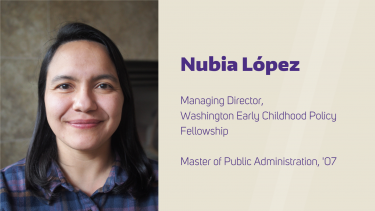 Nubia
Nubia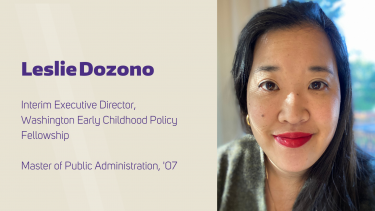
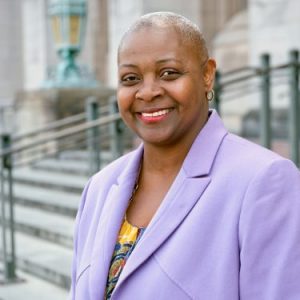 University of Washington President Ana Mari Cauce and Provost Mark A. Richards announced the selection of
University of Washington President Ana Mari Cauce and Provost Mark A. Richards announced the selection of 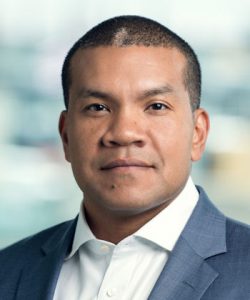 Governor Jay Inslee has appointed Brian Surratt to the
Governor Jay Inslee has appointed Brian Surratt to the  Earlier this year, the IPPHL team spoke with Hentsa Haddush Desta, a Cohort 1 fellow from Ethiopia, working as an Epidemiologist/Rapid Responder for Africa Center for Disease Control and Prevention (Africa CDC) COVID-19 Preparedness and Response.
Earlier this year, the IPPHL team spoke with Hentsa Haddush Desta, a Cohort 1 fellow from Ethiopia, working as an Epidemiologist/Rapid Responder for Africa Center for Disease Control and Prevention (Africa CDC) COVID-19 Preparedness and Response. 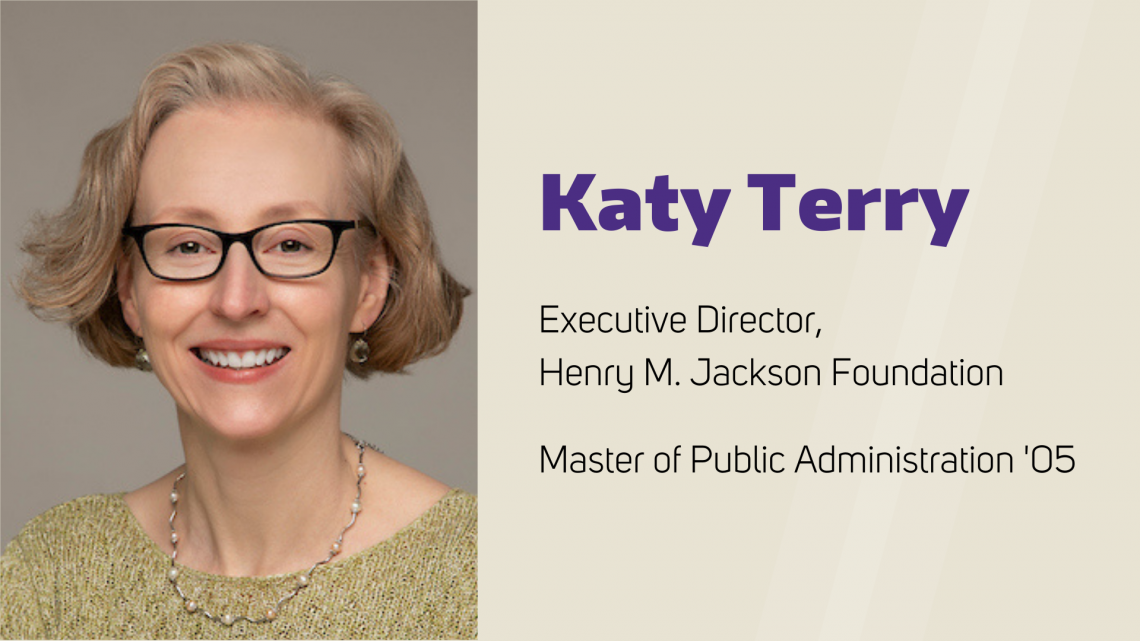
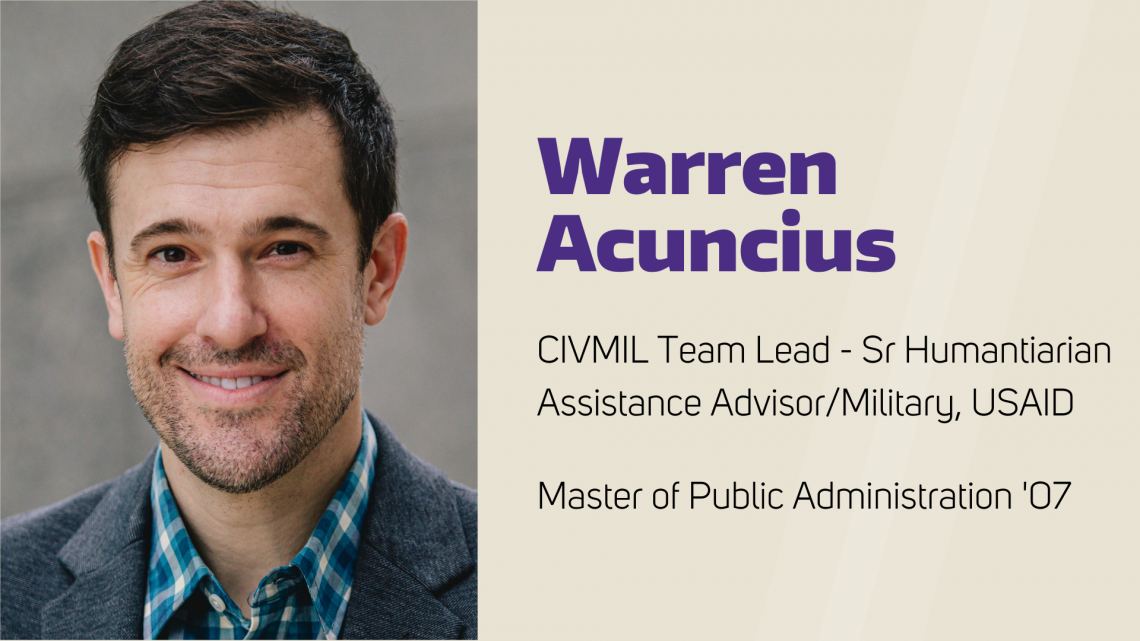
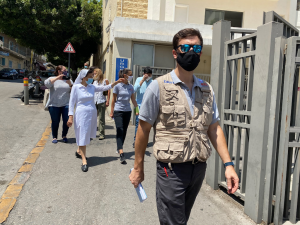
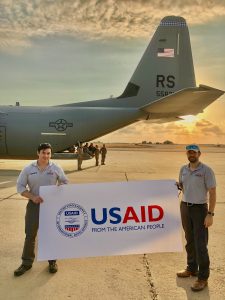
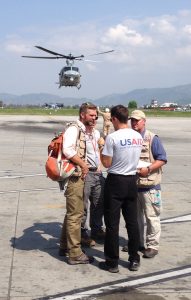
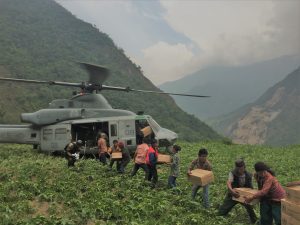
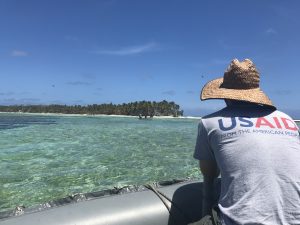 While the Evans school’s dedicated faculty are wonderful for imparting knowledge, it is the environment they create that has most informed my perspective. Classes where student discussion was core to understanding various perspectives built on experience and academics. Patient and wonderfully insightful people like
While the Evans school’s dedicated faculty are wonderful for imparting knowledge, it is the environment they create that has most informed my perspective. Classes where student discussion was core to understanding various perspectives built on experience and academics. Patient and wonderfully insightful people like 